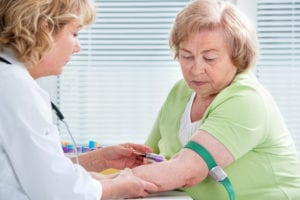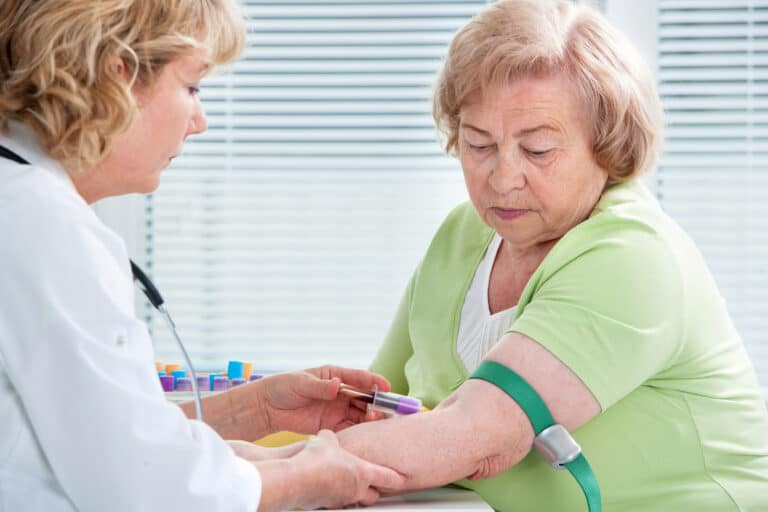
Being a caregiver to an older adult isn’t easy, but when the person has a bleeding disorder, you’ll have some additional challenges. One way to begin overcoming those challenges is to learn more about bleeding disorders and how they could affect your elderly family member. Since March is Bleeding Disorders Awareness Month, it’s a good time to begin educating yourself.
General Information
According to the Centers for Disease Control and Prevention (CDC), three million people in the United States have some kind of bleeding disorder. A bleeding disorder is a condition that causes the blood not to clot. When blood doesn’t clot, bleeding doesn’t stop the way it should, which can lead to excessive blood loss.
Blood contains a kind of blood cell called a platelet. Normally, when someone gets a cut, platelets clump together to plug the hole in the blood vessel. Then, proteins work to form a clot that serves to keep the platelets in place so that the injury can heal.
The blood of people with bleeding disorders does not clot properly because of at least one of the following:
- They don’t have enough platelets, or the platelets aren’t formed correctly.
- There are too few clotting proteins, or the proteins are abnormal.
- Their blood vessels aren’t normal.
Kinds of Bleeding Disorders
The two most common kinds of bleeding disorders are hemophilia and von Willebrand disease. Hemophilia is probably the most well-known. It is, though, pretty rare and mostly occurs in males. People with hemophilia don’t have enough of the clotting factor in their blood. They are classified as having either type A or type B depending on which clotting factor is deficient.
Von Willebrand disease is named as such because people with the disorder are missing a specific clotting factor, called the von Willebrand factor. The disorder is usually less severe than hemophilia and occurs in both men and women. Mild cases may not require treatment, but people with the disorder should not take drugs that affect bleeding, like aspirin and ibuprofen. More severe cases are treated with medications or infusions of blood factor.
Elder care providers can help with the care of older adults who have bleeding disorders. Elder care providers can remind the senior to take medications that help to control the condition. Elder care providers can also apply first aid for minor cuts and scrapes to prevent too much blood loss or call for emergency assistance if the injury is severe.
If you or an aging loved one needs elder care in Lincoln, CA, remember Senior Home Care Services. Call us at (916) 514-7006 for more information.
Sources
https://www.cdc.gov/features/red-tie-challenge/index.html
https://www.hematology.org/Patients/Bleeding.aspx
https://www.womenshealth.gov/a-z-topics/bleeding-disorders
- Helping Seniors Reduce Health Anxiety - April 18, 2025
- Why Should Seniors Consider Adding Soy to Their Diets? - April 7, 2025
- Four Ways to Celebrate Spring With Your Homebound Elderly Loved One - April 2, 2025


